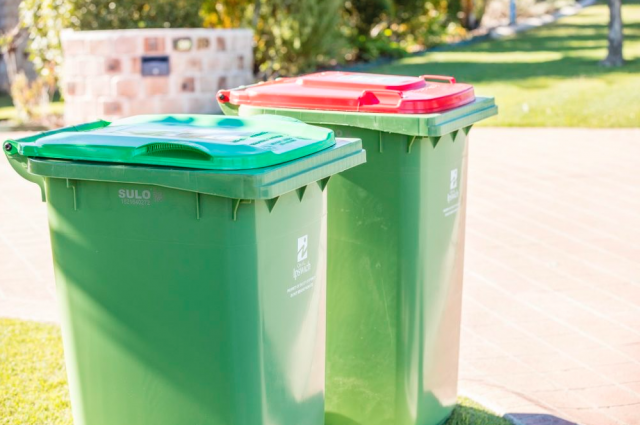
By Tanya Faulkner
Controversy and concern rings out in the Yarra Ranges as locals come to terms with the new FOGO services being introduced to the municipality.
Several questions were raised by the public during question time at the Yarra Ranges Council (YRC) general meeting held on Tuesday 24 October.
Locals in attendance of the meeting questioned why councillors of YRC chose to ignore the majority of residents in a recent survey who wanted weekly rubbish collection to remain, and how the FOGO service responds to the diverse needs of the community.
Wandin North local Ms Wright asked council why they chose to ignore the majority of community feedback, after council’s own strategy revealed 60 per cent of the 7,000 residents who completed a recent survey wanted weekly rubbish collection, while 65 per cent of webinar attendees (less than 200) would consider fortnightly collection.
YRC acting director planning and sustainable futures Amanda Kern said the decision to transition to fortnightly collection was based on a range of considerations, including community sentiment.
“Council’s Community Resource Recovery and Waste Plan is based on waste industry research, best practice for FOGO collections, and other sector insights and community feedback.
“The collection frequency adopted in our plan is designed to maximise the recovery of organic material from landfill and ensure that we can meet Recycling Victoria targets by 2030, and that service provides the best value for the community,” she said.
Ms Wright’s question was followed by one from Malvern East local Mr Hurlston, who asked how the mandatory opt in FOGO service responds to the diverse needs of the community, given it has no consideration of those who compost or do not require the service.
Ms Kern said council understands the diversity of the community, with FOGO intended to complement those currently composting.
“You can place certain items into your FOGO bin that some home composting systems can’t accept, such as cooked foods, meat, bones, dairy and citrus.
“The FOGO service maximises the recovery of organic material from landfill and ensures the council can meet Recycling Victoria policy targets,” she said.
The Yarra Ranges Council is amongst several who have introduced FOGO services as part of waste management in Victoria, however they look different across the state.
A Knox City Council representative said “waste management services differ from council to council as each council determines the nature of its waste management services to meet the needs and priorities of its community”.
They said there has been a 45 per cent reduction of waste going to landfill.
“In the first three months of the new weekly food and garden bin service, Knox residents have diverted 72 per cent of all green and recycling waste from landfill, up from 50 per cent in 2022.
“A total of 6828 tonnes of food scraps and other organics have been recycled into compost. This is the equivalent of 487 truckloads.
“About 6000 tonnes of greenhouse emissions have been saved, which is equivalent to pulling 4000 cars off our roads each year.
“Pleasingly, there has been no increase in contamination in recycling or food and garden waste bins and no increase in dumped rubbish or litter in public rubbish bins.
“While there have been some big changes to our bin services, our community has embraced these changes and residents should feel proud of the results we have collectively achieved,” they said.
The Knox municipality has the same services offered as the Yarra Ranges, offering fortnightly collections alongside the FOGO service.
However, Maroondah Council is providing a point of difference in the Hills, retaining their collection frequency for organics and general waste bins, with decisions made following community consultation and informed by evidence and research.
Maroondah Mayor, Cr Rob Steane said in 2019, the council engaged with the community on a range of waste services including introducing a FOGO service and general waste being diverted to an energy from waste facility.
“The feedback from residents was that they did not support a change in their general waste
collection frequency, but they supported a FOGO service.
“We also undertook research, which assessed how full Maroondah household general
waste bins are, how often they’re being placed out for collection, and what is being placed
in them.
“This research found that food represented about 10 per cent of the volume of the general waste bin, 82 per cent of households presented their bins weekly, and 90 per cent of bins were more than half full.
“Based on this, removing the food from general waste bins would only remove 10 per cent of
volume, or 20 per cent of volume over a fortnightly period,” he said.
Cr Steane said his council was concerned about introducing a fortnightly frequency change for general waste at the same time as FOGO, for fear of an overflow from the general waste that could potentially increase contamination of the FOGO service.
“This is the greatest risk to the service’s long-term feasibility.
“Based on research and feedback from the community, a decision was made to retain the
current bin collection frequencies and encourage the separation of food as the first step to
reducing general waste to landfill.
“Council will continue to monitor the FOGO service and measure general waste bin usage.
“If the evidence supports a shift in frequencies, we would again engage with the community
before determining a way forward,” he said.
YRC’s Ms Kern said council will review the system following its six-month implementation to ensure it best meets community needs and delivers on the broader environmental targets.






